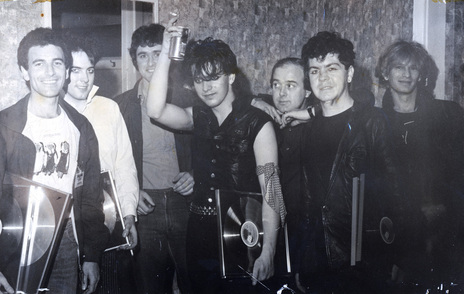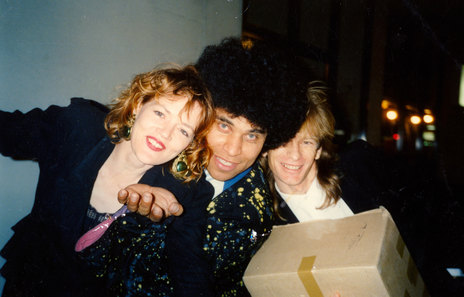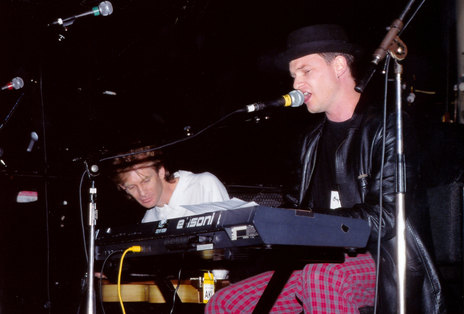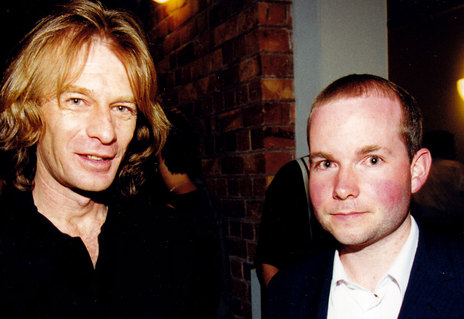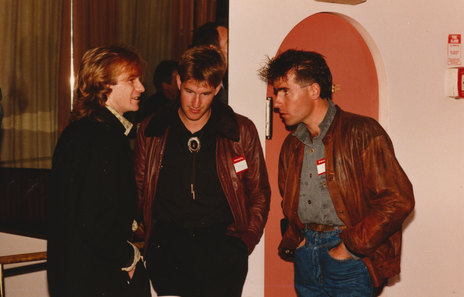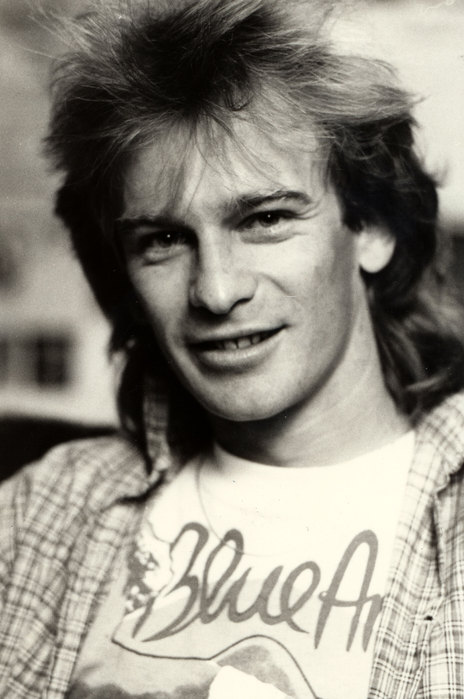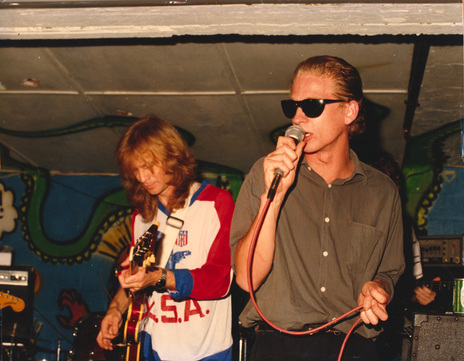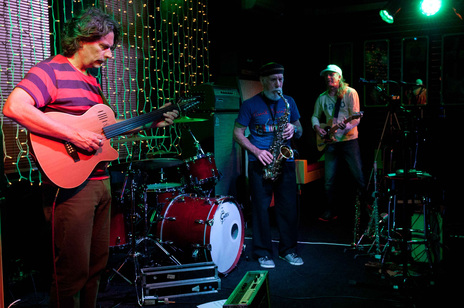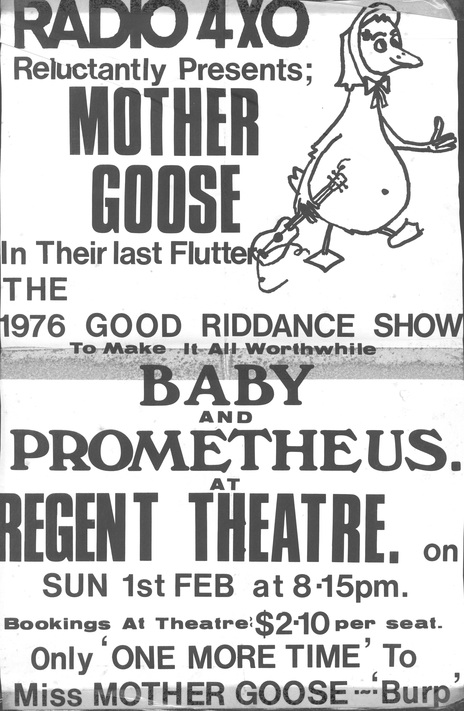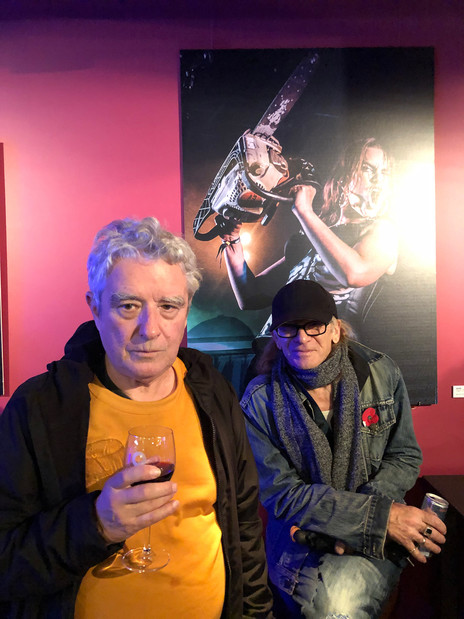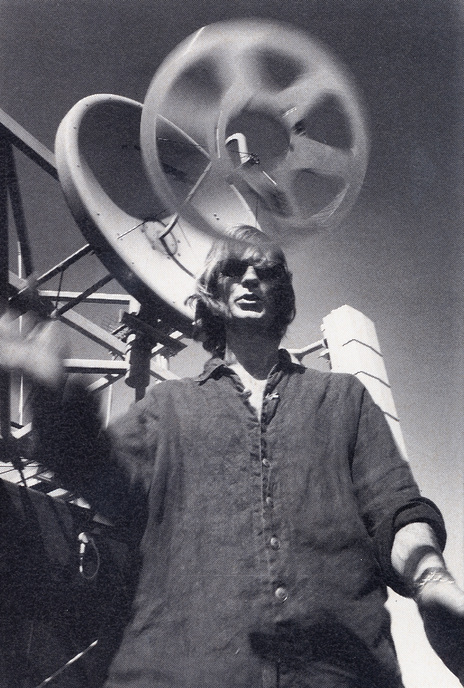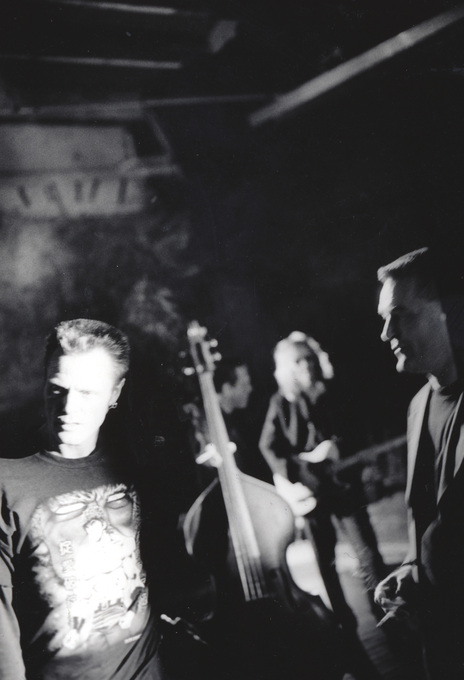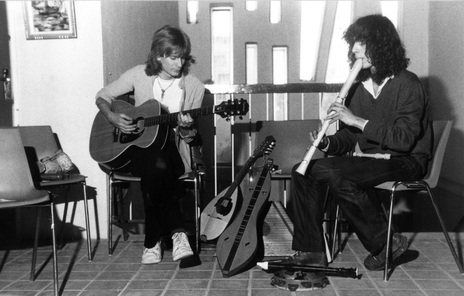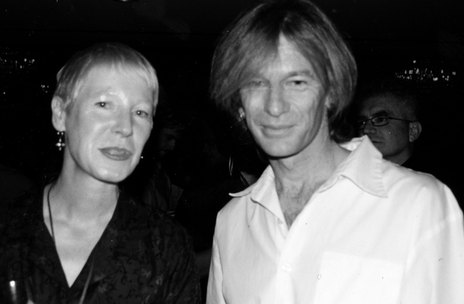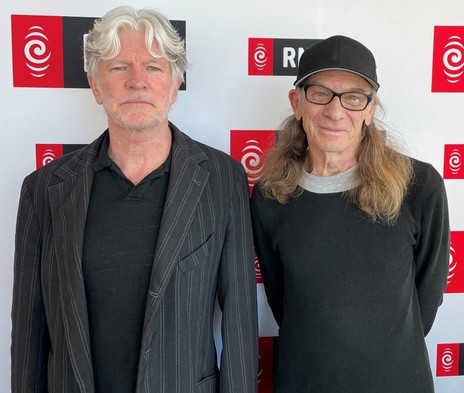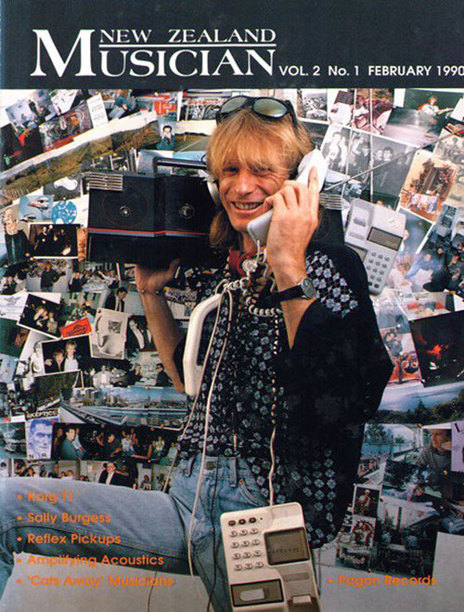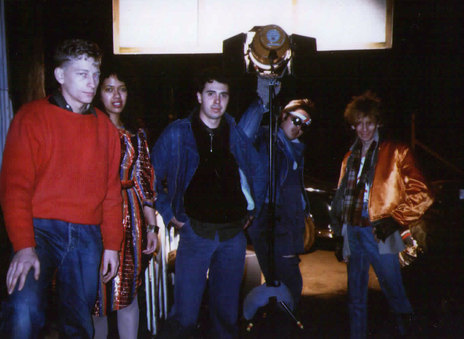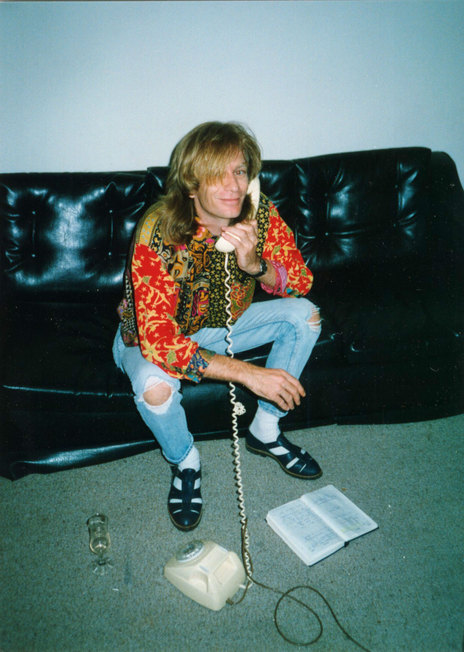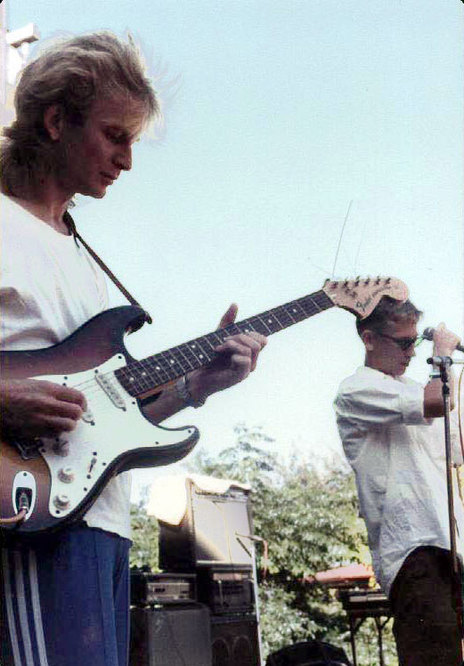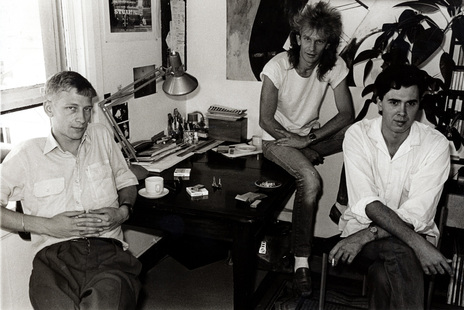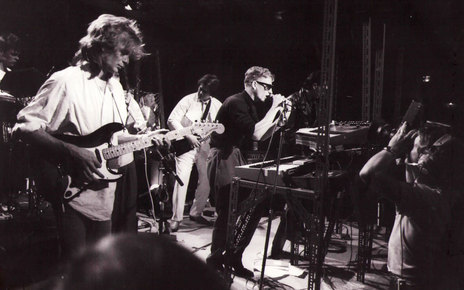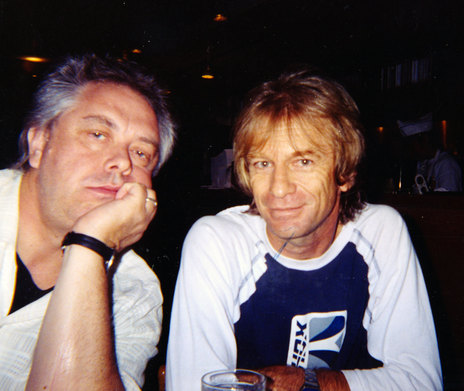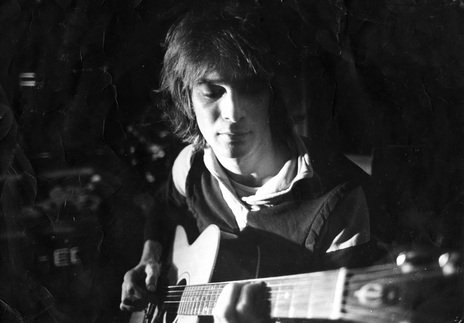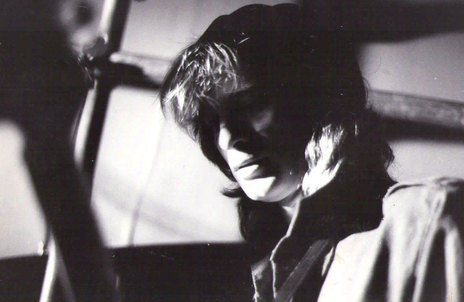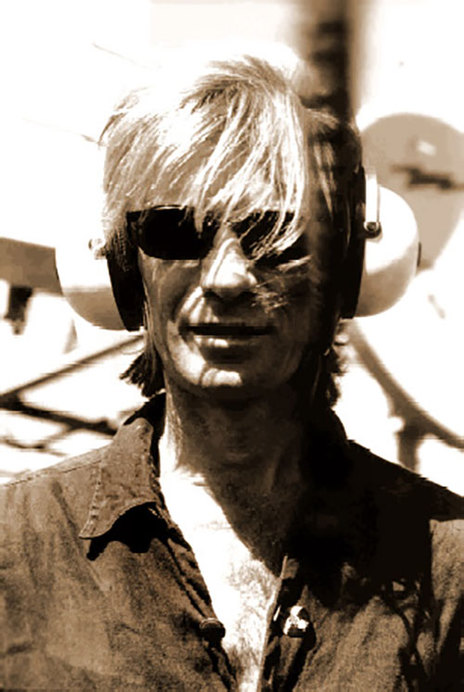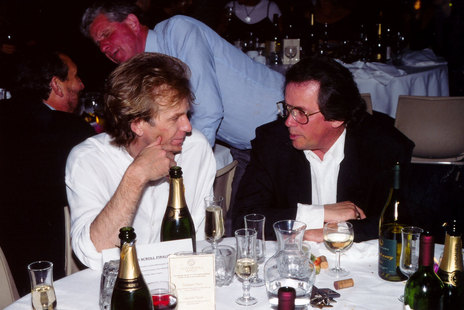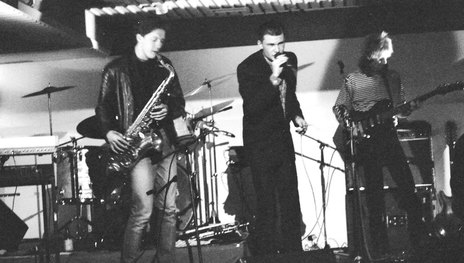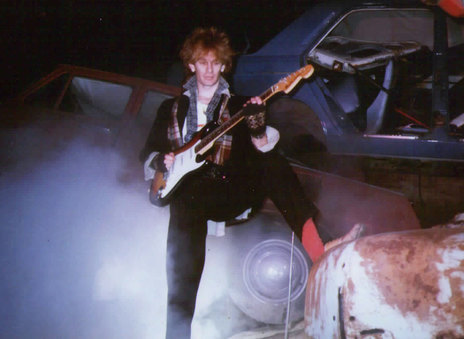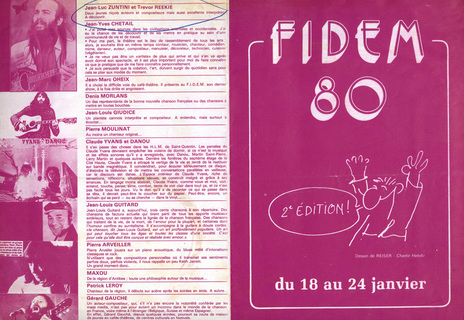Trevor Reekie was born 1953 in Dunedin but the family relocated to Auckland. Reekie returned south in 1971, studying history at Otago University, where he teamed up with fellow students to form Prometheus, to play “prog-punk”.
“We were a United Nations,” he says, “an Indian bass-player, Filipino drummer, Dutch violinist, me on guitar …” They played original material as well as the odd cover like Pink Floyd’s ‘Set The Controls For The Heart Of The Sun’. Enough said.
After receiving his BA, Reekie headed overseas, teaming up with a renaissance theatre troupe in Nice. “Artists and musicians are well-accepted in Europe,” he says, “even those who rely on welfare. They’re not regarded as dole bludgers.”
There was a spell in the south of France and in 1979 Reekie was in London where schoolboy mate and neighbour Bruce Kirkland, former chairman of the NZ Students Art Council, gave him part-time work at Stiff Records. “Bruce and I grew up in the same Onehunga street and he’d worked his way into a key position at Stiff. I just handled mail orders but it gave me an idea about the way the music business operates.”
It was an exciting time to be in Britain, the punk movement had ignited a new ethos in the music industry.
It was an exciting time to be in Britain, the punk movement had ignited a new ethos in the music industry with new independent labels surfacing to meet demand. Stiff was one of the new major players but there were many others, including the smaller Fiction Records, formed in 1979 by expatriate New Zealander Chris Parry (ex-The Fourmyula) and built around The Cure. Another New Zealander, Terry Condon, licensed The Cure to his fledgling New Zealand label, Stunn Records. Reekie, after a brief spell in New York, where Kirkland had relocated to set up Stiff’s USA branch, returned to New Zealand in 1981 and found himself in charge of Stunn by default.
Condon, whose CV included stints with EMI’s Abbey Road Studios (he provided some effects to the recording of ‘Yellow Submarine’) and as head of Ringo Starr’s Ring O’ Records, returned to New Zealand in 1980 to form Stunn. The following year, with Glyn Tucker Jnr of Mandrill Recording Studio, he started a second label, Reaction Records. Condon also worked with a number of NZ acts, including Lip Service, Sharon O’Neill and Dave McArtney & The Pink Flamingos. In July 1981, shortly after Reekie’s return, Condon crossed the Tasman with the Flamingos and Reekie was given the job of managing the two fledgling labels.
Terry Condon has an unenviable reputation, which Reekie is well aware of, but he says, “Terry did me a big favour. There wasn’t much money in it – I made more working behind the counter at Record Warehouse – but he threw me in the deep end and, to keep the business afloat, I had to learn pretty fast. I did just about everything myself – production, promotion, liaising with CBS [Stunn distributors] and even tour managing [Kevin Borich Express, distributed in NZ by Stunn].”
Stunn Records licensed off-shore releases and the Reaction label was directly involved in the local industry, largely because of Tucker’s main business interest – Mandrill Recording Studio. With Condon’s departure, Reekie found himself working with Tucker and established a formidable stable of acts, most notably Danse Macabre, Marginal Era, Penknife Glides and an up-and-coming Wellington band, The Mockers.
“I was very impressed with the local bands upon my return to New Zealand,” Reekie says. “When I left I thought that the scene was pretty dire and I was largely unaware of some of the great music that had come through during my absence and the giant strides made by Ripper and Propeller.”
When Danse Macabre folded in 1982, band leader Nigel Russell formed Car Crash Set, initially a synth-pop duo with Dave Bulog, which signed to Reaction and recorded at Mandrill. Reekie added guitar bits in the studio and, by default, became a full-time member. “It was a very exciting time,” Reekie says, “but also frustrating. It was an indication of what technology could do in a decade but it was a lot of trial-and-error. Paul Crowther, being a whizz kid, was an enormous help building a device that allowed drum machines to talk to arpeggiators. This was pre-midi”
"I’d never played on stage so often and so regularly before, although we possibly drank a little too much.”
– Trevor Reekie
Car Crash Set survived through to 1986, releasing a full-length album and a handful of singles and EPs, all painfully crafted. Actual live performances were sporadic and often featured up to nine players; Nigel Russell and Trevor Reekie went on to join the original Greg Johnson Set. Reekie played alongside Johnson for almost 10 years – “It was great, lots of gigs, I’d never played on stage so often and so regularly before, although we possibly drank a little too much.”
Meanwhile, leaving Reaction to Tucker in 1985, Reekie went over to head the new Pagan Records, formed to release movie soundtracks for Larry Parr’s Mirage Films (Bridge To Nowhere, Queen City Rocker, Came A Hot Friday).
One of the actors in Bridge To Nowhere was Peter McCauley, then married to singer-songwriter Shona Laing, the 1970s superstar long absent from New Zealand and the NZ charts. Reekie seized the opportunity and, produced by Bruce Lynch, the Genre album was released in 1986. It wasn’t a huge seller but it contained a remarkable track in ‘Glad I’m Not A Kennedy’. Reekie recalls Laing telling him, “It will be another 10 years before I write another song like that.”
Re-recorded for Laing’s follow-up album, South, (“Pagan’s breakthrough” according to Reekie), ‘Kennedy’ was a Top 10 hit in Australia and New Zealand and bubbled under in the USA. There were other successes – NZ chart-toppers for Tex Pistol (AKA Ian Morris), Rikki Morris and the Holidaymakers (‘Sweet Lovers’, New Zealand’s biggest-selling single of the year in 1988 no less) and forging long-term relationships with The Warratahs(a huge seller), Paul Ubana Jones and others.
In 1988, just as the Holidaymakers were making history for the label, Mirage Films went into liquidation, taking Pagan with it. Fortunately, Reekie had seen it coming and, through entertainment lawyer Noel Agnew, set up a trust to earmark the artists’ royalties. “I felt like it was falling apart,” Reekie says, “but it was actually falling into place.” He negotiated a deal with the liquidators and bought the label for $1,000.
“I was seeking label identity before I realised that the alternative is to listen to all types of music.”
– Trevor Reekie
Looking back at Pagan’s history, Reekie says, “I was seeking label identity before I realised that the alternative is to listen to all types of music.” The label has reflected that – country music (The Warratahs and Al Hunter), blues (Chicago Smokeshop), jazz (Bluespeak) and everything else in between, from Ardijah to Strawpeople, Hallelujah Picassos, Southside Of Bombay, The Nixons, … starting the recording careers of Greg Johnson and Shihad. “I feel very privileged to work with the people who have been released on Pagan,” Reekie says.
Reekie would also play an important role in the early career of Bic Runga, recording her first (unreleased) EP before passing her onto Sony.
A sister label, Antenna, launched in 1996, primarily to release Reekie’s own musical projects – Cosa Nostra with Daniel Barnes and Trip To The Moon with Tom Ludvigson (both units are still around) – and also to release other electronic acts. Inevitably, the label grew into something else, releasing “harder-edged” and guitar-based acts (Darcy Clay, Pluto, Voom, Tadpole), while Pagan concentrated on the old-school stable it had long supported (The Warratahs, Paul Ubana Jones, etc).
There is a conception that Pagan and Antenna no longer operates and Reekie concedes that he no longer actively pursues new signings and that he is “more comfortable on the sidelines, cheering everyone on” but Reekie and Tim Moon (co-owner since the mid-1990s, replacing original business partner Sheryl Morris) still retain the labels and, indeed, are wont to re-release material to meet demand. “We’ve left the door slightly ajar,” Reekie says.
In 1991 Reekie and Morris produced a weekly NZ music radio programme (funded by NZ on Air), Counting The Beat. Broadcast by Auckland’s 91FM and syndicated nationwide, the show ran for seven years and gave Reekie a secondary income. In the 2000s Trevor Reekie has been a freelance broadcaster (mostly for National Radio with the weekly Access All Areas show on Saturday afternoons, and Hidden Treasures in the summer months) and occasional journalist. It's estimated that Reekie has, over the last decade and a half, created over 1000 stories for Radio New Zealand National.
Since 2005 he has been a regular contributor to NZ Musician magazine, curating the “Moments Like These” column, featuring snapshots of musicians and industry players from the past. Editor Richard Thorne says, "Trevor's column is one of our most popular features, with young and older readers alike."
